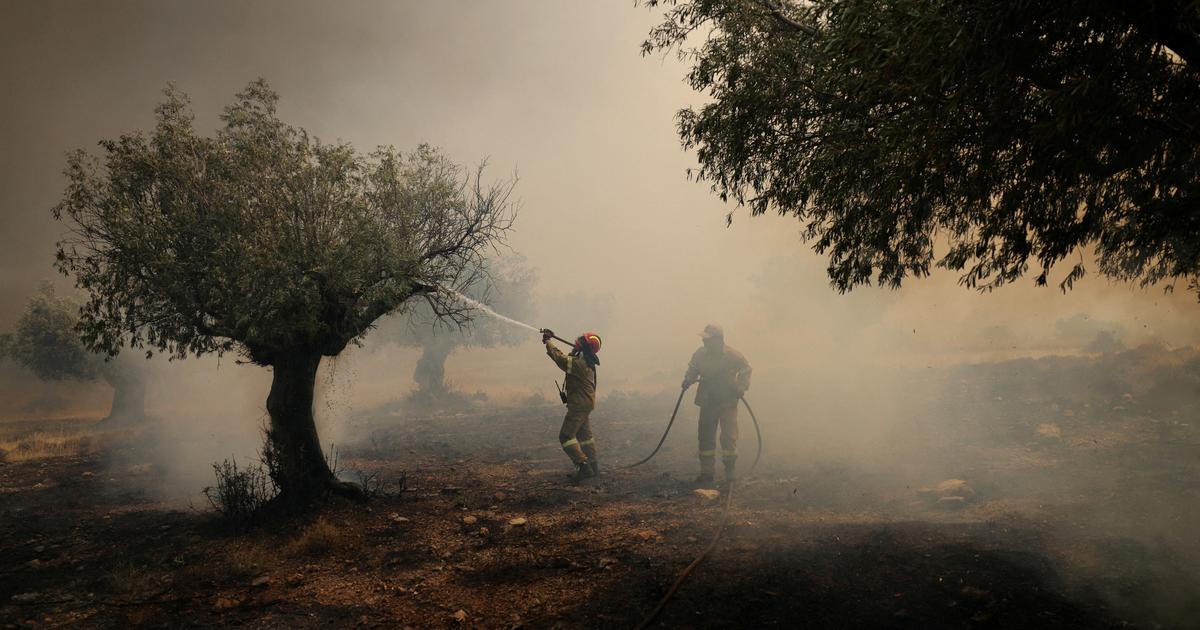The Mediterranean region, hit in July by near-record temperatures and wildfires, has long been classified as a climate change "hotspot" by scientists.
To discover
- LIVE - Reshuffle: Ndiaye, Schiappa, Klein... These ministers in the hot seat
The beaches, seafood and heritage sites of this region, which spans parts of southern Europe, North Africa and western Asia, are under threat. Here are five major threats to the region, as identified in its latest report by the United Nations' Intergovernmental Panel on Climate Change (IPCC). Its reports constitute the most comprehensive synthesis of scientific knowledge on global warming.
Deadly heat waves
Like parts of the United States and Asia, the Mediterranean has been hit by extreme heat in recent weeks. The Italian islands, like Sardinia and Sicily, could surpass the continental record of 48.8°C. "Heat waves are increasing due to climate change in the Mediterranean and are amplified in cities due to urban planning policies," causing illness and death, the IPCC said in its 2022 report on climate change impacts and adaptation.
A 2010 study by the University of Bern calculated that the intensity, duration and number of heat waves in the eastern Mediterranean had increased six- to seven-fold since the 1960s.
Threats to wheat and olives
Researchers at Stanford University have highlighted that "most Mediterranean cultures are experiencing significant negative consequences" due to climate change. North African farmers are again preparing for poor harvests due to drought. "This year it will be zero. We are not going to produce anything, no hay, no wheat and no legumes. There will be nothing," said Tahar Chaouachi, a wheat farmer in Tunisia, in April.
Water and politics
The IPCC report warned that climate change would worsen water shortages "in most places" in the region. It predicts up to 45% decline in lakes and reservoirs over the course of the century and up to 55% decline in surface water availability in North Africa. At the same time, "terrestrial and freshwater ecosystems are affected by climate change in the Mediterranean, leading to a loss of habitats and biodiversity".
According to the European Drought Observatory, groundwater in half of the Mediterranean region was already low in June. Politically, the drought in Spain has raised tensions ahead of the July 23 general election.
Rising waters
Sea levels in the Mediterranean basin have risen by 2.8 mm per year in recent decades, threatening shorelines and cities like Venice, which is experiencing increasing flooding. "Sea level rise is already affecting coastal waters around the Mediterranean and is expected to increase the risk of flooding, erosion and salinization of coastlines," the IPCC said. "These impacts could affect agriculture, fisheries and aquaculture, urban development, port operations, tourism, cultural sites and many coastal ecosystems.
»Invasive species
Climate change does not only threaten beaches, tourist jewels of the region. Aquatic ecosystems and the resulting diet could also suffer. "Since the 80s, a drastic change has taken place within Mediterranean marine ecosystems, with both a decline in biodiversity and the arrival of invasive species," says the IPCC.
Among them, the rabbitfish, of tropical origin, which devours seaweed and seagrass beds of the Mediterranean seabed, depriving other species of valuable resources. In the scenario of global warming above 1.5°C since pre-industrial times, more than 20% of fish and invertebrates exploited in the eastern Mediterranean could disappear locally by 2060 and fishing revenues could decline by up to 30% by 2050, scientists warn.

